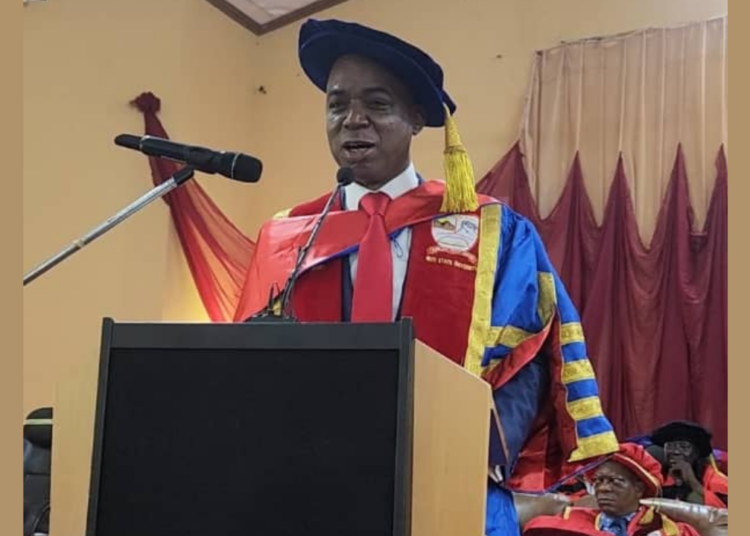The newly appointed Chancellor of Ekiti State University, Dr. Tunji Olowolafe, has announced the launch of a groundbreaking N1 billion Innovation Fund aimed at empowering agro-tech enterprises founded by the university’s students and graduates.
In a rousing address at the 28th convocation of the Ekiti State University, which took place on April 3 and 4, 2024, Dr Olowolafe while congratulating the graduands and the institution, unveiled the bold initiative, stressing that it underscored the urgent need to drive innovation and enterprise in agriculture to bolster food security across Nigeria.
Dr Olowolafe thanked the Visitor of the University and Governor of Ekiti State, Biodun Abayomi Oyebanji, for finding him worthy to be appointed as Chancellor.
Addressing thousands of graduands, faculty, and guests, Dr. Olowolafe emphasised the vital role agriculture plays as the backbone of the nation’s economy. He highlighted the immense potential for innovation and inclusive growth within local agricultural communities.
“Agriculture stands as the backbone of our nation, and it is here that I see the greatest potential for innovation and economic prosperity,” stated Dr. Olowolafe.
“The one billion naira Innovation Fund is designed to empower agro-tech companies founded by present graduands and students of our great Ekiti State University.”
The Chancellor further urged students and academics alike to actively engage in food production efforts.
“Today your excellency, the general discussion in Nigeria is about cost of living and food security. All of us eat. But many of us do not spend time to think about what we eat, how it is produced and how did it get to our table. These are very important questions.”
He proposed optimising the university’s fertile lands for agricultural purposes, enabling students to lease small plots and gain hands-on experience in farming, while simultaneously earning a living.
“Each student can lease a small plot of land for production. As we learn to pass our exams, we can also use these farms to eat and earn a living,” Dr. Olowolafe suggested.
“My view is regardless of what we are studying at university, we must all think about how we can do our bit to produce food. This means both the academic and student faculties must come together to think and act,” he added.
Recognising the multifaceted nature of agriculture, the Chancellor encouraged students to explore diverse avenues, from grains and vegetables to poultry, fisheries, and even agri-logistics and app development.
Dr. Olowolafe further extended his intervention initiative beyond agriculture, as he also announced plans to create a platform for 100 of the university’s brightest minds to engage in global business process outsourcing, enabling them to contribute to the world economy while honing their skills.
The Chancellor also announced the establishment of a new program to subsidize capacity building for up to 30 academic staff members of the institution to facilitate their participation in international conferences, training sessions, and research activities.





